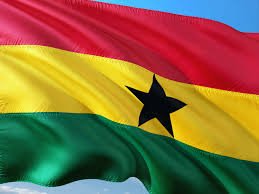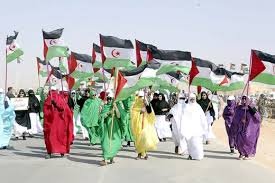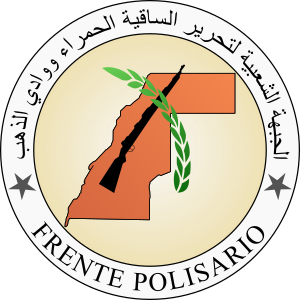Accra announced last Thursday, following a meeting between the Ghanaian and Moroccan foreign ministers, that it would from now on endorse Rabat’s plan for autonomy of the territory, which is modeled on the concept of Spanish autonomous regions like the Basque Country or Catalonia.
Ghana had supported the Sahrawi Arab Democratic Republic, established by the independence-seeking Polisario Front, since 1979.However, the decades of support and recognition have come to an end:

The plan has so far not been accepted by the Algeria-backed Polisario front, which controls around 30% of the territory in Western Sahara, with the rest largely being under Moroccan control.
The Western Sahara conflict finds its origins in the end of the Spanish colony in the region in 1975. The Polisario Front started an insurgency against the Spanish colonial forces, before waging a sixteen-year-long war of independence against Morocco and Mauritania.
But the Sahrawi Arab Democratic Republic established by the Polisario Front has found only limited international recognition over time. Despite being recognized at some points by as many as 80 countries, a number of states have since withdrawn or “frozen” their support.
Ghana hence becomes the latest in a growing list of countries turning to back Morocco in the resolution of the decades-long conflict instead.
About the Polisario Front
Polisario Front is a politico-military organization striving to end Moroccan control of the former Spanish territory of Western Sahara, in northwestern Africa, and win independence for that region. The Polisario Front is composed largely of the indigenous nomadic inhabitants of the Western Sahara region, the Sahrawi. The Polisario Front began in May 1973 as an insurgency (based in neighbouring Mauritania) against Spanish control of Western Sahara. After Spain withdrew and Morocco and Mauritania partitioned Western Sahara between themselves in 1976, the Polisario Front relocated to Algeria, which henceforth provided the organization with bases and military aid. Mauritania made peace with the Polisario Front in 1979, but Morocco then unilaterally annexed Mauritania’s portion of Western Sahara. During the 1980s Polisario Front guerrillas, numbering some 15,000 motorized and well-armed troops, harassed and raided Moroccan outposts and defenses in Western Sahara. Morocco responded by constructing a berm, or earthen barrier, some 1,240 miles (2,000 km) long, which was completed by 1987.

In the late 1980s and early ’90s, the Polisario Front suffered a series of high-level defections and internal problems
The Popular Front for the Liberation of Saguia el-Hamra and Río de Oro (Spanish: ‘Frente Popular de Liberación de Saguía el Hamra y Río de Oro’), better known by its acronym ‘Polisario Front’, is a Sahrawi nationalist liberation movement seeking to end the occupation of Western Sahara through the means of self-determination and armed resistance.
Tracing its origin to a Sahrawi nationalist organization known as the Movement for the Liberation of Saguia el Hamra and Wadi el Dhahab, the Polisario Front was formally constituted in 1973 with the intention of launching an armed struggle against the Spanish occupation which lasted until 1975, when the Spanish decided to allow Mauritania and Morocco to partition and occupy the territory.
The Polisario Front proclaimed the Sahrawi Arab Democratic Republic (SADR) on 27 February 1976, and waged a war to drive out the two armies. It forced Mauritania to relinquish its claim over Western Sahara in 1979 and continued its military campaign against Morocco until the 1991 ceasefire, pending the holding of a UN-backed referendum which has been consistently postponed ever since. In 2020 the Polisario Front declared the ceasefire over and resumed the armed conflict.
The United Nations considers the Polisario Front to be the legitimate representative of the Sahrawi people and maintains that the Sahrawis have a right to self-determination. The Polisario Front is outlawed in the parts of Western Sahara under Moroccan control, and it is illegal to raise its party flag (often called the Sahrawi flag) there.
Additional Source: Africa News




